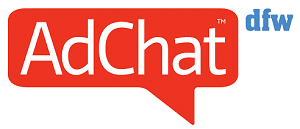In our business, data and analytics are critical to just about everything we do.
With that, Moroch is excited to announce we have hired Weiling Xu to join the agency as VP of Data & Analytics. In this position, she will be responsible for developing and growing our business intelligence, data and media insights practice.
Boasting more than 15 years of marketing analytics experience and a deep background in data integrity, we got the scoop from Weiling about exactly why her role is so important to producing great work for our clients.
This Q&A has been edited for clarity/brevity.
What type of agency experience do you have?
After moving into the agency world, I’ve worked in the database marketing field, using statistical modeling to predict customer behaviors, and leveraging customer segmentation for CRM management and personalization.
And more recently?
In the past few years, I’ve moved closer to the digital media front. Most recently at Hearts and Science, I managed the omnichannel media reporting and analytics for the AT&T client, providing analytics support and collaboration with media and strategy teams for budget allocation, pacing, measurement framework, audience investment analytics and attribution modeling.
As someone who’s made data and analytics their whole career, why do you feel it’s so important for agencies?
Data is important because it helps us understand the past and make informed decisions about the future. The best use of data can be in 3 stages: Descriptive, Predictive and Prescriptive. Descriptive analytics helps us understand what happened and why. Predictive analytics uses historical patterns to predict specific outcome using algorithms and tells us what’s likely to happen. Prescriptive analytics answers the question for the clients – what do we need to do, making recommendations on actions and strategies that would lead to the desired outcome.
What drew you to join Moroch?
I’m most impressed by Moroch being an independent agency and having kept such long tenured relationships with many of our clients, and rich knowledge of their business. I’m most excited about being part of that, and bringing in more advanced analytics to energize the team.
What is your favorite part of the job?
The chance to be a process-oriented leader. The success of my job is defined by helping teams achieve their goals – improving the process so teams can focus on what they’re good at, providing the resources and tools that can help them excel.
What are your next steps as you settle in?
I’d like to build a strong data foundation so we always have the most accurate and reliable data to work on. We’re looking at ways to help automate the processes and build tools for visualization and analytics support, so teams can spend less energy on number crunching, and more on real analytics for thought leadership, which helps our clients connect the dots and make data-driven decisions with ease.
Finally: there is a lot that data can tell us…but is there anything data can’t tell us?
There’s a lot that data can tell us, but data can’t tell us everything. It’s important to understand the limitations and bias in data to avoid some common data fallacies. With the right data and analytics, we don’t need to know 100% of everything, we just need to find that sweet spot – addressing 20% of the causes that drive 80% of the overall outcomes
original content









